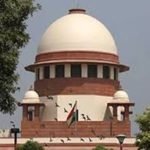The appellant, K. H. Kamaladini, an Executive Engineer in the Public Works Department (PWD), Porvorim, faced allegations stemming from a complaint received on 30th January 2013 by the Chief Minister of Goa and Chief Vigilance Officer. The complaint detailed irregularities in 19 short tender notices for water supply works (847 numbers), alleging they were not published in newspapers, unnecessarily split, and allotted to the same parties, leading to a loss to the Government.
An enquiry by the Department of Vigilance confirmed that tender notices were not published and bids were significantly above estimated costs, indicating a lack of competitive bidding. It was further alleged that the appellant made handwritten remarks, “approved to take short tender without publishing in newspaper and issue W/O,” on documents, and that these orders were dated 16th April 2007, granting financial powers for emergent works not categorised as such34.
A First Information Report (FIR) was registered on 5th June 2013, and a charge sheet was filed on 22nd May 2020 for offences under the IPC and Prevention of Corruption Act. The charge sheet also alleged recovery of jewellery and cash from the appellant’s bank locker. The appellant’s application for discharge was dismissed by the Sessions Judge, who framed charges, a decision upheld by the High Court of Bombay at Goa.
Law Involved
The core legal provisions examined in this judgment include:
Indian Penal Code, 1860 (IPC):
Section 409: Criminal breach of trust by a public servant.
Section 468: Forgery for the purpose of cheating.
Section 471: Using as genuine a forged document.
Prevention of Corruption Act, 1988 (PC Act):
Section 13(1) read with Section 13(2): Criminal misconduct by a public servant. Specifically, Section 13(1)(d) which pertains to obtaining any valuable thing or pecuniary advantage by corrupt or illegal means or by abusing position [12c, 12d].
Code of Criminal Procedure (CrPC):
Sections 226 and 227: Provisions for discharge applications at the stage of framing of charges.
Section 401: Power of the High Court in revision applications.
Reasoning
The Supreme Court meticulously reviewed the allegations and the legal framework for framing charges:
- Discharge Plea Standard: The Court reiterated that at the stage of considering a discharge plea under Sections 226 and 227 CrPC, it must examine the documents forming part of the charge sheet and other material to determine if a sufficient ground exists for proceeding. The Court cannot sift evidence or conduct a detailed examination of the material.
- Allegations of Forgery (IPC): The Court found that the allegation of the appellant inserting handwritten remarks, “approved to take short tender without publishing in newspaper and issue W/O,” with the intent to show it was made by the Minister, coupled with a Central Forensic Science Laboratory (CFSL) opinion confirming the appellant’s handwriting, prima facie made out the offence of forgery under Section 468 IPC.
- Allegations of Criminal Breach of Trust (IPC): The charge sheet alleged that the appellant dishonestly inserted words into documents, leading to the entrustment of those documents to him. The Court held that this prima facie disclosed an offence under Section 409 IPC.
- Allegations of Criminal Misconduct (PC Act): Crucially, the Supreme Court noted that the charge sheet lacked any allegation that the appellant obtained for himself or for any other person any valuable thing or pecuniary advantage1112. While other clauses of Section 13(1) PC Act were noted, the specific accusation under Section 13(1)(d) was not substantiated by facts in the charge sheet showing the appellant received any gratification or valuable thing. Therefore, the Court concluded that the offences under the Prevention of Corruption Act were not attracted.
- No Contradiction from Departmental Inquiry: The Court noted that the findings of a departmental inquiry exonerating the appellant from charges of not publishing tenders were not binding on criminal proceedings, as the scope and standard of proof differ.
Holding
The Supreme Court partially allowed the appeal .
- The Court held that there was no material in the charge sheet to support the offences punishable under Section 13(1)(d) read with Section 13(2) of the Prevention of Corruption Act, 1988.
- Consequently, the orders of the Sessions Judge (dated 15th February 2023) and the High Court (dated 27th March 2023) were modified. The charges framed against the appellant under the PC Act were set aside.
- The Supreme Court directed that charges only for the offences under Sections 409 (Criminal breach of trust by public servant) and 468 (Forgery for purpose of cheating) of the Indian Penal Code, 1860, should be maintained .
- The observations made in this judgment are only for the purposes of considering the plea of discharge and will not bind the Trial Court at the time of final hearing .
K. H. Kamaladini V. State
Supreme Court: 2025 INSC 745: (DoJ 20-05-2025)






